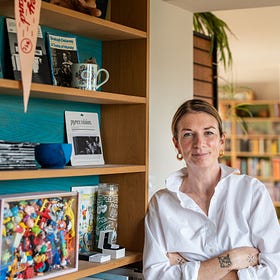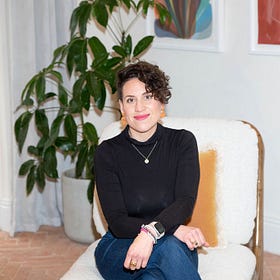What I've been reading about neurodivergence
Across Instagram, Substack and in books - that is accessible, neuroaffirming and has resonated or got me thinking.
I’ve spent the past year with neurodivergence - particularly autism, and increasingly dyslexia, but ADHD as well - as my special interest.
I have read dozens of books, attended webinars, spoken with professionals and obsessively scrolled the internet. Instagram has often been my saviour.
In fact, I’ve read so many incredibly helpful, affirming, positive, honest posts on Instagram that I decided to create my own account, alongside this Substack.
There, I share posts like this:
And because there’s such a huge need for information about raising neurodivergent children, and a sense of solidarity, they keep going viral.
Here, I’d like to share some of the posts, webinars, books and Substacks that have resonated, or sparked something, for me.
It’s not always aligned with my experience but it helps me to see the wider picture in terms of how it feels to be neurodivergent, or raising neurodivergent kids.
What I've been reading about neurodivergence
Eliza Fricker’s Instagram @elizefricker_missingthemark. She shares posts like this that are simple at first glance but highlight something much deeper:
I also love her books Can’t not won’t, A different kind of parenting and When the naughty step makes things worse. You can find them all here.
There’s a Q&A with Eliza Fricker on Raising Neurodivergence, too, if you’re interested:
Eliza Fricker: illustrator, author, mother
Eliza Fricker’s book Can’t Not Won’t was the first book I read about what the school experience can be like for neurodivergent children and I gasped at so many of the references, as it explained our situation with our son so well.
This Substack piece - I Am Dyslexic. Do I Belong on Substack? - by
caught my attention.
It reminded me of the continued imposter feeling that neurodivergent adults might experience. I’m so pleased that she is here, on Substack, sharing this.
Steph generously shares her personal experience of raising an autistic PDA daughter. These personal accounts hit like nothing else. I’m grateful for them.
This webinar by Sarah-Jane Critchley on school-based anxiety and barriers to school attendance.
It looks at why our neurodivergent children might struggle with school - including reasons they can’t articulate - and how we can support them.
It’s pretty brutal in parts, where some autistic children talk share how it feels to be autistic in school, but there are trigger warnings in place.
I adore the @madebydyslexia Instagram account. It frames dyslexia as an attribute and shares stories of very successful dyslexic people.
I follow @hidden20podcast on Instagram, run by Seedlip founder Ben Branson, and I love the snippets they share about the podcast episodes.
I haven’t actually listened to the podcast but I intend to. Here’s the link in case you’d like to listen to the Hidden 20 podcast.
Kirsti Nicole Hadley - @futurpwrgang on Instagram - is a powerhouse neurodivergent activist. She is doing incredible work. Follow along.
Jess Rad writes and share short videos about her neurodivergence, and activism, on LinkedIn that I always find inspiring.
I also interviewed her for Raising Neurodivergence so you can read more about Jess, and her work, here:
Jess Rad: Founder of The WomenHood
Jess Rad is founder of The WomenHood, connecting and supporting women through the unspoken challenges of womanhood. From menopause to money, imposter syndrome to neurodiversity, divorce to people pleasing.
I love following Emily Katy - @itsemilykaty on Instagram. She is autistic and wrote bestselling book Girl Unmasked: How uncovering my autism saved my life.
I recently came across Lisa Lloyd on Instagram, as she has a book out called Raising the SENbetweeners (great title). She is very funny.
There are loads more people I follow, read and love, but I have a thing about always ending a list after three, five, seven, 10 or 20. So, I’m stopping here.
But please leave your suggestions for books, Instagram accounts, Substacks, webinars and anything else on neurodivergence that you find useful in the comments.
Thank you,
Annie x









